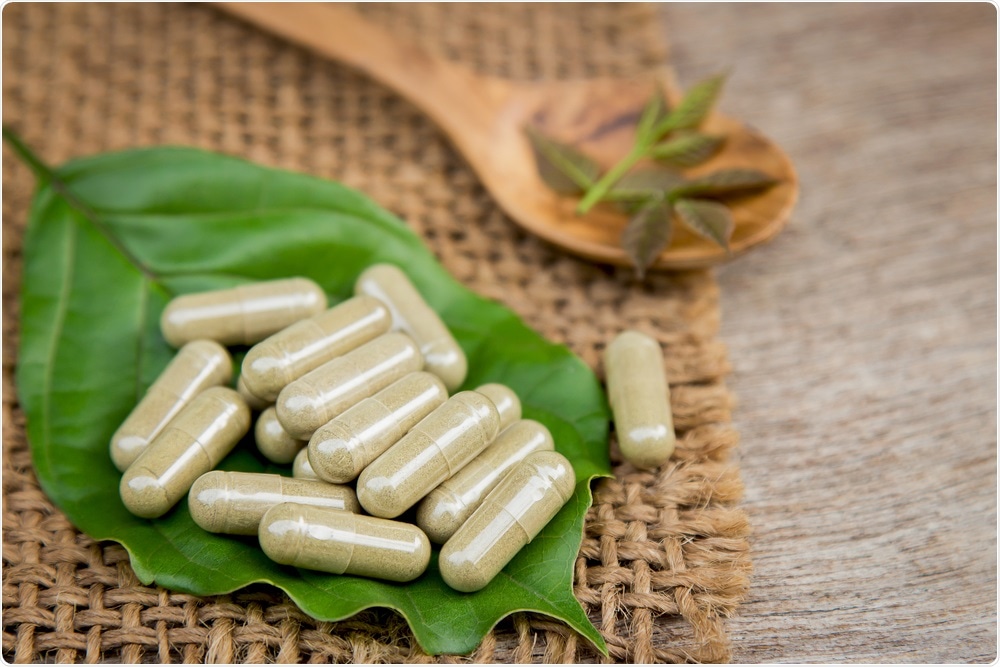Green tea shown to increase the defensive capabilities of cells
 Thought LeadersProfessor Micheal RistowProfessor, Energy MetabolismETH Zurich
Thought LeadersProfessor Micheal RistowProfessor, Energy MetabolismETH ZurichGreen tea has long been said to have health benefits including prolonging life. In this interview, we speak to Professor Micheal Ristow about his latest research into green tea and its effects on oxidative stress.
Please could you tell us about your background in health sciences and what inspired your latest research into green tea?
My research entails the search for therapeutic options to prevent and cure age-related diseases. An avid green tea drinker myself, I wanted to find out whether the claims about green tea, in terms of health and longevity, held up under scientific scrutiny.
Green tea has long been said to have health benefits including prolonging life. What are some of the other health benefits of green tea and what ingredients of green tea are said to give these various health benefits?
Clinical trials and epidemiological studies have revealed health benefits associated with green tea consumption, including a significant reduction in systolic blood pressure and fasting glucose, as well as weight loss in type 2 diabetes patients, and women with central obesity.

Image Credit: 5 second Studio/Shutterstock.com
What is meant by the term ‘oxidative stress’ and how do the catechins in green tea prevent damage to cells or DNA?
Oxidative stress is an imbalance of free radicals and antioxidants. Free radicals form when oxygen interacts with certain molecules. While they are a natural result of normal metabolic processes such as digesting foods, and environmental stressors (too much sun, for example), they can damage cells in the body.
As we age the body loses its ability to eliminate free radicals creating oxidative stress and aging. What we found is that green tea catechins do not suppress oxidative stress (meaning they do not act as an antioxidant). Instead, they improve the body’s defenses by promoting oxidative stress.
Can you describe how you carried out your latest research into green tea and oxidative stress? What did you discover?
Researchers at ETH Zurich and the University of Jena conducted a study to determine how catechins act in the nematode worm C. elegans. The worms were fed green tea catechins and researchers analyzed their cellular metabolism, stress resistance, physical exercise capacity, health, and lifespan, among others.
We discovered that green tea polyphenols (or catechins) are not in fact antioxidants. The green tea catechins increase oxidative stress in the short term, increasing the body’s defensive capabilities much like eating fewer calories or engaging in sporting activities. In our study, the catechins in green tea led to longevity in the nematodes.
You also noticed similar results when you investigated sports and health. Can you describe your research here?
In 2009, my research group conducted a study that showed that physical activity and sports promote health by increasing oxidative stress in the short term which improves the body’s defenses. Consuming fewer calories has the same effect.
You yourself are an avid green tea drinker but advise against taking green tea extracts or concentrates. Why is this?
At a certain concentration, high-does catechins inhibit mitochondria inducing cell death which could be particularly dangerous for the liver.
Anyone consuming these polyphenols in excessive doses risks damaging their organs.

Image Credit: Fecundap stock/Shutterstock.com
What advice would you give to people who either drink green tea or want to try and start drinking green tea?
I suggest drinking green tea in moderation would be fine, but certainly avoid green tea extracts or concentrates.
As with any nutritional or dietary supplement, it is best to seek personalized advice from a medical professional familiar with your medical history and needs.
What are the next steps for you and your research?
My research team and I are pursuing research on the biochemical and molecular basis of longevity regulation to provide novel therapeutic options to prevent and cure age-related diseases like obesity, diabetes, neurodegeneration, and cancer. We are particularly interested in genetic pathways and environmental factors that modulate longevity.
In addition to other topics, we are particularly focused on the role played by mitochondria in lifespan regulation. In the past and contrary to the widely reiterated Free Radical Theory of Aging, we have repeatedly shown that the health-promoting effects associated with low caloric intake, physical exercise, sirtuins (signaling proteins involved in metabolic regulation), impaired insulin/IGF-1 signaling, and other lifespan-extending interventions may be due to increased formation of Reactive Oxygen Species (ROS) within the mitochondria, causing a vaccination-like adaptive response that culminates in increased stress resistance and extended longevity, a process a. k. a. mitochondrial hormesis or mitohormesis.
Where can readers find more information?
- Green tea catechins promote oxidative stress
- https://ethz.ch/en/news-and-events/eth-news/news/2021/10/green-tea-catechines-promote-oxidative-stress.html
- Published paper
- Tian J, Geiss C, Zarse K, Madreiter-Sokolowski CT, Ristow M: Green tea catechins EGCG and ECG enhance the fitness and lifespan of Caenorhabditis elegans by complex I inhibition. Aging, 2021 Oct 4;13. doi: 10.18632/aging.203597call_made
- Oxidative stress mediates health-promoting effects of physical exercise, and antioxidants prevent these
- https://www.pnas.org/content/106/21/8665.long
- Glucosamine promotes longevity by mimicking a low-carb diet
- https://ethz.ch/en/news-and-events/eth-news/news/2014/04/glucosamine-promotes-longevity.html
- Energy Metabolism Lab at ETH Zurich
- https://energymetab.ethz.ch/
- Social channels
- https://www.facebook.com/profristow
- https://twitter.com/Prof_M_Ristow
About Professor Michael Ristow
Prof. Dr. Michael Ristow and his research group in the Energy Metabolism Laboratory in the Dept. of Health Sciences and Technology, ETH Zurich focus on the biochemical and molecular basis of longevity regulation to provide novel therapeutic options to prevent and cure age-related diseases like obesity, diabetes, neurodegeneration, and cancer.
Ristow completed his undergraduate and M.D. at the University of Bochum. He also completed post-doctoral research at Harvard Medical School. At the University of Jena, he served as a full professor in nutritional science, later joining ETH Zurich as a full professor in energy metabolism in 2013.
Posted in: Thought Leaders | Medical Science News | Medical Research News | Healthcare News
Tags: Aging, Antioxidant, B Cell, Blood, Blood Pressure, Caenorhabditis elegans, Cancer, Cell, Cell Death, CT, Diabetes, Diet, DNA, Exercise, Fasting, Free Radicals, Genetic, Glucosamine, Glucose, Green Tea, Insulin, Laboratory, Liver, Medical School, Metabolism, Mitochondria, Mitohormesis, Neurodegeneration, Obesity, OCT, Oxidative Stress, Oxygen, Physical Activity, Research, Stress, Tea, Type 2 Diabetes, Weight Loss
.png)
Written by
Emily Henderson
During her time at AZoNetwork, Emily has interviewed over 150 leading experts in all areas of science and healthcare including the World Health Organization and the United Nations. She loves being at the forefront of exciting new research and sharing science stories with thought leaders all over the world.
Source: Read Full Article
